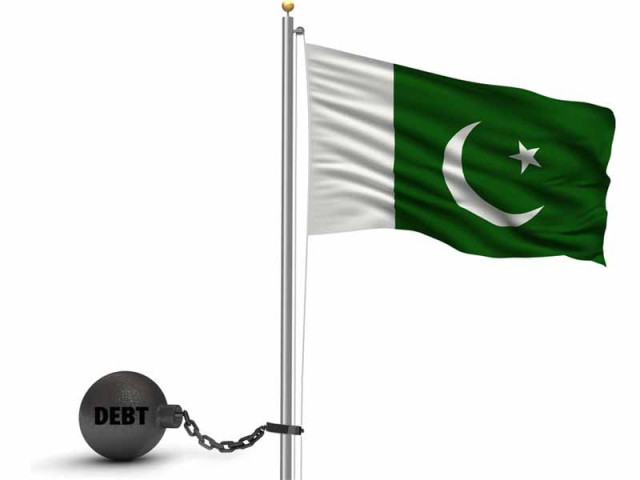Conditionalities of (in)dependence
As Pakistan continues to dig deeper into foreign pockets, it further diminishes its autonomy in policy making.

Contrary to common perception, Pakistan’s national debt is not the most serious economic problem for the country. Any serious analysis of the country’s balance sheet, of the more than the six and a half decades spanning the nation’s existence, would reveal one undeniable fact: we have a serious tax collection problem.
Despite New Delhi’s resistance in providing Pakistan its due share of assets of the formerly undivided British India on Independence, the newly formed government in Karachi was still able to marshal its resources and pay its bills for the first couple of years.
Nevertheless, soon afterwards the government began to falter. As the Pakistani state began offering more services to its citizens without demanding adequate compensation via taxes, it began resorting to American largesse for sustenance.
In the early 1950s, American support consisted largely of wheat exports to Pakistan. Beginning in 1954, when Pakistan became a signatory to the anti-Communist Baghdad Pact, the United States began delivering even more civilian and military aid to Pakistan. And thus began Pakistan’s perennial dependence on Washington.
The problem is relatively simple: as a percentage of the Gross Domestic Product (GDP), Pakistan’s government spends about 20% of the total size of the economy. This amount is relatively reasonable, though it should arguably be higher for a developing country.
Yet government revenues — what we all pay in taxes — have never in the entire history of the nation exceeded 13% of GDP. Last year, the figure was an abysmal 8.5% of GDP — the lowest ratio in all of Asia.
Faced with this gargantuan and seemingly permanent gap between spending and revenues, the government has only three choices: it can either ask the people for more money by cracking down on tax evaders and eliminating loopholes that allow many of the wealthy not to pay taxes, it can borrow or it can beg.
The government’s choice has invariably been the latter two options, which explains why we have run up such a large debt and why we are constantly dependent on Washington for their generosity.
Since independence, Washington has given close to $25 billion to Pakistan in civilian and military assistance. This steep figure excludes payments for services rendered for the US-led coalition in Afghanistan, which most US media sources typically label as ‘aid’.
When a country becomes dependent on a foreign source for funds — whether it is for everyday consumption or a massive infrastructure project – it compromises its ability to pursue interests that may contravene those defined by its donors.
In recent years, Pakistan has been turning to multilateral lenders such as the International Monetary Fund (IMF) to help finance its fiscal deficit. Between 1988 and 2011, Islamabad has asked for an IMF bailout no fewer than 11 times and may soon go to the Washington-based lender for a 12th bailout. Out of all those financial bailouts, Pakistan has so far only paid back for one — sought under former president Pervez Musharraf in 2001.
The IMF, unlike the US government, places conditions on its aid that affect the Pakistani economy rather than its foreign policy. And most of those conditions are designed to ensure that Pakistan develops the ability to keep paying its own bills rather than constantly requesting for bailouts.
Thus failure to meet those conditions imposed by IMF actually negates the country’s own national interest. If Pakistan ever has to break the vicious cycle of dependence on foreign lenders, it ironically needs to start obeying instructions of international financial institutions.
Published in The Express Tribune, August 14th, 2011.



















COMMENTS
Comments are moderated and generally will be posted if they are on-topic and not abusive.
For more information, please see our Comments FAQ